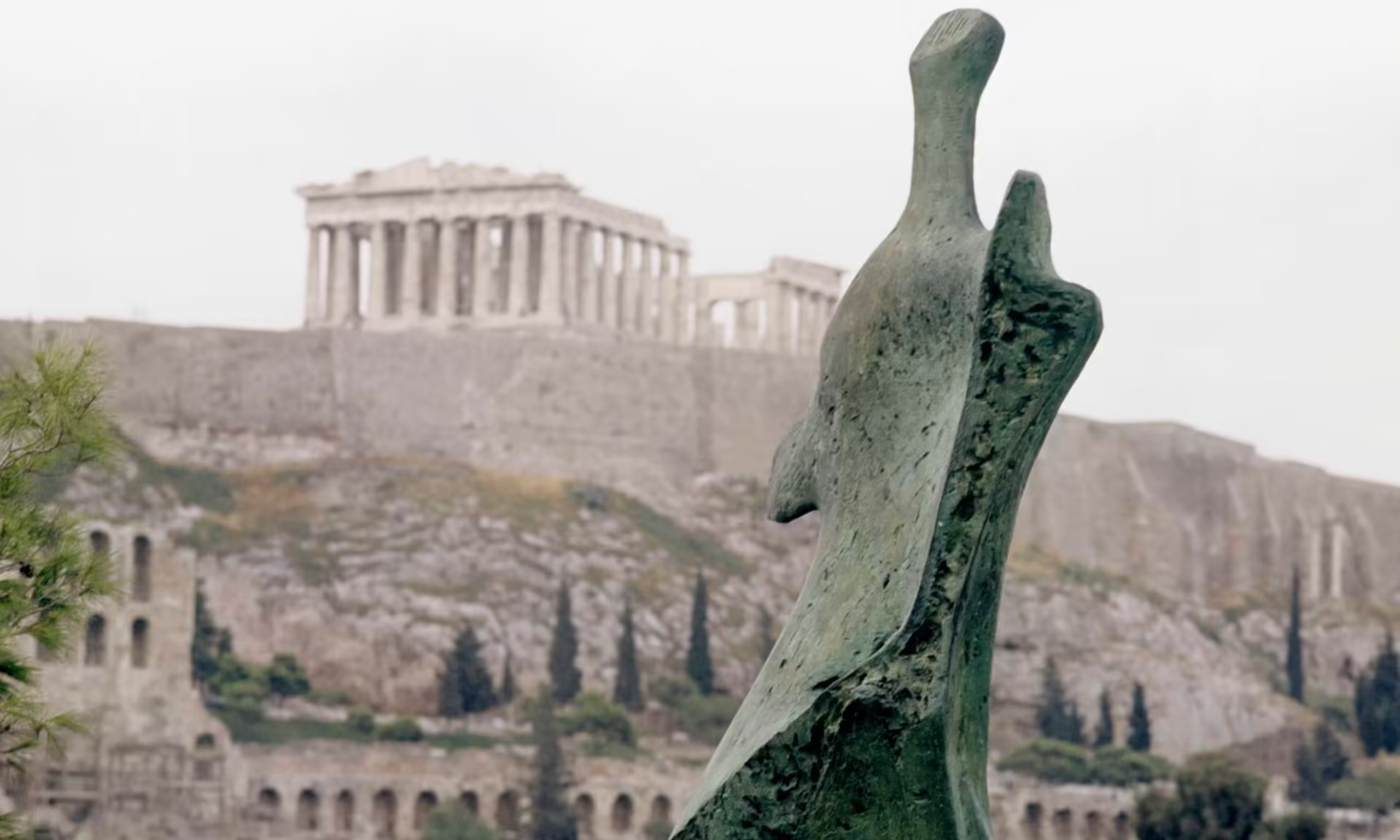If you haven’t yet visited Henry Moore and Greece at Gagosian Athens, don’t miss the chance to immerse yourself in this extraordinary exhibition, running until October 26, 2024. It marks the first time in twenty years that Moore’s work has been exhibited in Greece, offering a rare opportunity to witness the profound connection between the celebrated British sculptor and the ancient Greek art that so deeply influenced his creations.
The exhibition, which spans Moore’s entire career, is a tribute to his lifelong fascination with Greek antiquity. Although Moore initially drew inspiration from non-European cultures—particularly African and Mesoamerican art—his artistic direction took a significant turn following his pivotal 1951 trip to Greece.
“The Acropolis is wonderful—more marvellous than ever I imagined… it’s the greatest thrill I have ever had.”
Henry Moore, 1951
The impact of the Acropolis on Moore was profound. In his own words, “The Acropolis is wonderful—more marvellous than ever I imagined… it’s the greatest thrill I have ever had.” This visit left a lasting imprint on his perception of space and form, inspiring him to draw parallels between the harmonious relationship of sculpture and architecture in ancient Greece, which he sought to emulate in his own works. The experience also reinforced his belief in the importance of setting for sculpture, which he often emphasized throughout his career, saying, “Sculpture is inseparable from its surroundings.”

Key Works Exhibited in Henry Moore’s Athenian Showcase
Among the highlights of the 92 works on display at the Henry Moore and Greece exhibition at Gagosian Athens is the towering Large Standing Figure: Knife Edge (1961), a post-war bronze sculpture inspired by Cycladic art that evokes the grace of The Winged Victory of Samothrace. Other notable pieces include casts of Draped Reclining Figure (1952-53) and the Falling Warrior (1956-57) each underscoring Moore’s ongoing dialogue with the legacy of ancient Greek aesthetics.
Dimensions: artwork with base (h x l x d): 110 × 157.5 × 87.5 cm. Image Credit: The Henry Moore Foundation. Photo: Jonty Wilde
For further reading, explore The Guardian article titled “He saw how architecture and sculpture could coexist: why Greece fell in love with Henry Moore,” by Helena Smith, which highlights the new Henry Moore exhibition in Athens. Additionally, you can check out “How Greece Shaped Henry Moore’s Artistic Vision” by Sara Bright on the Creativity is website for deeper insights into Moore’s connection with Greek art and culture.
Exhibition: Henry Moore and Greece
Location: Gagosian Gallery of Athens
Address: 22 Anapiron Polemou Street, Athens 11521
View Map
Contact:
Phone: +30 210 36 40 215
Email: athens@gagosian.com
Opening Hours:
Tuesday–Saturday: 11:00 AM – 7:00 PM
Thursday: 11:00 AM – 8:00 PM